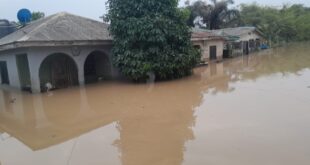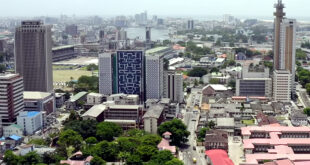Following an attack that left 17 soldiers dead, Mali declares a new state of emergency after similar measures expired last week. Many see a 2015 peace deal between rival ethnic groups and the government as unraveling.
Mali’s council of ministers also declared a three-day period of mourning starting on today, 21 July for the 17 soldiers killed in an attack by Islamists on an army base on Tuesday, 19 July. “This is in homage to the victims of the terrorist attack” in Nampala, they said.
Gunmen killed 17 soldiers and wounded 35 others in the attack on an army camp in central Mali on Tuesday morning. At least two groups have claimed responsibility – the Islamist group Macina Liberation Front, which is linked to the jihadist organization Ansar Dine. The second is a recently-formed group from the ethnic Peul community, calling itself the National Alliance for the Protection of Peul Identity and Restoration of Justice (ANSIPRJ).
Violence hampers aid relief
The recent surge in violence in northern Mali and attacks on aid workers are making the delivery of food, water and healthcare to millions of people increasingly problematic, aid agencies said on Wednesday. Ten attacks were recorded in April and May after just three in the first three months of this year, according to data from the UN.
“Aid agencies are not necessarily being targeted, but criminality prevails in some areas where they are acting,” Anouk Desgroseilliers, public information officer for UN Office for the Coordination of Humanitarian Affairs (OCHA), said. “This is restricting access and having an impact on the delivery of humanitarian assistance in the region,” she added.
Around three million people in Mali do not have enough to eat, and some 500,000 in conflict-hit areas in the north need urgent food aid, according to aid agencies in the region.
The conflict started in 2012 after a coalition of separatist rebels and Islamist militants took large swathes of the north of the country. A French-led military intervention in 2013 then drove them out of the main towns they had been occupying. The militants have since regrouped and launched high-profile attacks, including last year at a Bamako hotel.
jbh/gsw (AFP, Reuters)
 THE AFRICAN COURIER. Reporting Africa and its Diaspora! The African Courier is an international magazine published in Germany to report on Africa and the Diaspora African experience. The first issue of the bimonthly magazine appeared on the newsstands on 15 February 1998. The African Courier is a communication forum for European-African political, economic and cultural exchanges, and a voice for Africa in Europe.
THE AFRICAN COURIER. Reporting Africa and its Diaspora! The African Courier is an international magazine published in Germany to report on Africa and the Diaspora African experience. The first issue of the bimonthly magazine appeared on the newsstands on 15 February 1998. The African Courier is a communication forum for European-African political, economic and cultural exchanges, and a voice for Africa in Europe.
































